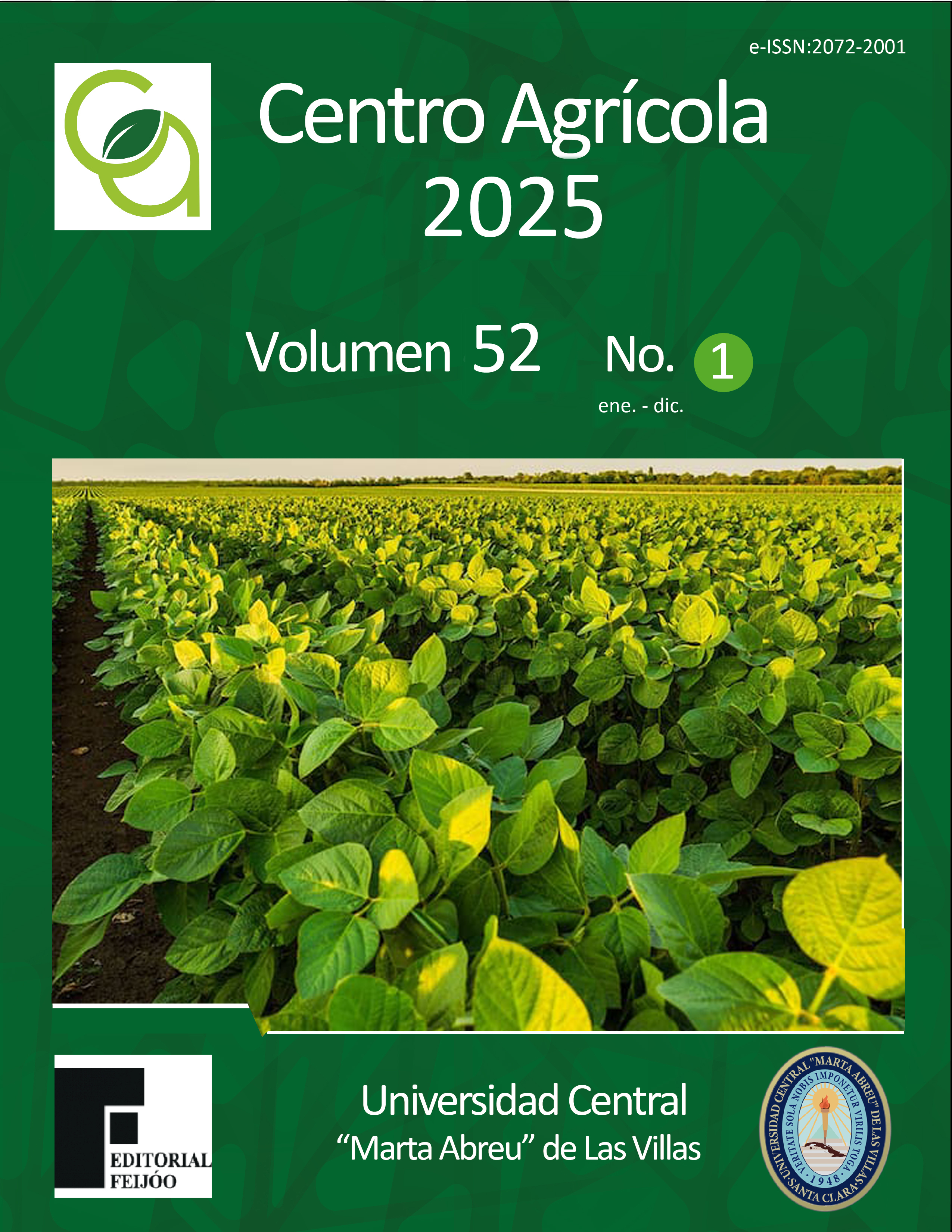CF: cag013222369
ARTÍCULO DE INVESTIGACIÓN
Cepas y dosis de rizobios influyen en la germinación y el crecimiento del cafeto en el pre-germinador
Strains and doses of rhizobia influence the germination and growth of coffee plants in the pre-germinator
Sucleidi Nápoles Vinent1*
Edanicel Gallardo Acosta2
Adaris Rivera Zorrilla1
Ionel Hernández Forte3
María Caridad Nápoles García3
Belkis Morales Mena3
Jorge González Aguilera
1 Universidad de Oriente, Avenida de las Américas S/N. Santiago de Cuba 90100, Cuba
2 Empresa Agroforestal de Tercer Frente. San Rafael S/N Cruce de los Baños Tercer Frente, Santiago de Cuba 90100, Cuba
3 Instituto Nacional de Ciencias Agrícolas, San José de las Lajas, Carretera de Tapaste, Mayabeque, Cuba
4 Universidade Federal do Mato Grosso do Sul-Câmpus de Chapadão do Sul-Rod MS 306, Km 105, Caixa Postal 112 Chapadão do Sul/MS, CEP 79560-000, Brasil
*Correspondencia: Esta dirección de correo electrónico está protegida contra spambots. Usted necesita tener Javascript activado para poder verla.
RESUMEN
El empleo de rizobios promotores del crecimiento vegetal es una alternativa de interés para estimular el desarrollo del cafeto en la fase de pre-germinador, en el contexto de una agricultura sostenible. El objetivo de este trabajo fue evaluar la inoculación de cepas y dosis de rizobios en el cafeto en condiciones de canteros pre-germinadores. Fueron empleados los cultivares ‘Isla 5-15’ (Coffea arabica L.) y ‘Robusta’ (Coffea canephora Pierre ex Froehner). Se utilizó un diseño completo al azar con arreglo factorial 3×3 con un tratamiento adicional (control sin rizobio), empleando como factores tres cepas (Rhizobium sp. Rpd16, Rhizobium sp. C1 y Bradyrhizobium elkani ICA 8001) y tres dosis de aplicación (0,1; 0,5 y 1,0 mL por semilla). El experimento fue realizado en dos fases: durante la germinación y el desarrollo de las semillas. Se evaluó el porcentaje de emergencia, índice de emergencia e índice de velocidad de emergencia de la semilla en la primera fase. En la segunda fase se evaluó la altura de plántula y la longitud de raíz. La combinación de cepas y dosis de rizobios influyen en los dos cultivares en la fase de germinación y manifiestan poco efecto en la fase de crecimiento en condiciones de pre-germinadores. Las cepas que mejor respuesta manifestaron en las dos cultivares fueron Rhizobium sp. (Rpd16) y B. elkani (ICA 8001). Las dosis tuvieron efectos apenas en la fase de germinación y fueron dependientes de las cepas evaluadas en los diferentes índices. Estos resultados sugieren el empleo de cepas de rizobios para el manejo integrado del cafeto en su estadio inicial.
ABSTRACT
The use of plant growth-promoting rhizobia is an interesting alternative to stimulate the development of coffee plants in the pre-germination phase, in the context of sustainable agriculture. The objective of this work was to evaluate the inoculation of strains and doses of rhizobia in coffee plants in pre-germination beds. The cultivars ‘Isla 5-15’ (Coffea arabica L.) and ‘Robusta’ (Coffea canephora Pierre ex Froehner) were used. A complete randomized design with a 3×3 factorial arrangement was used with additional treatment (control without rhizobia), using three strains (Rhizobium sp. Rpd16, Rhizobium sp. C1, and Bradyrhizobium elkani ICA 8001) and three application rates (0.1, 0.5 and 1.0 mL per seed) as factors. The experiment was conducted in two phases: during germination and seed development. The percentage of emergence, emergence index and emergence velocity index of the seed were evaluated in the first phase. In the second phase, seedling height and root length were evaluated. The combination of strains and rhizobia doses influenced the two cultivars in the germination phase and showed little effect in the growth phase under pre-germination conditions. The strains that showed the best response in the two cultivars were Rhizobium sp. (Rpd16) and B. elkani (ICA 8001). The doses had effects only in the germination phase and were dependent on the strains evaluated in the different indices. These results suggest the use of rhizobial strains for the integrated management of coffee plants in their initial stage.



